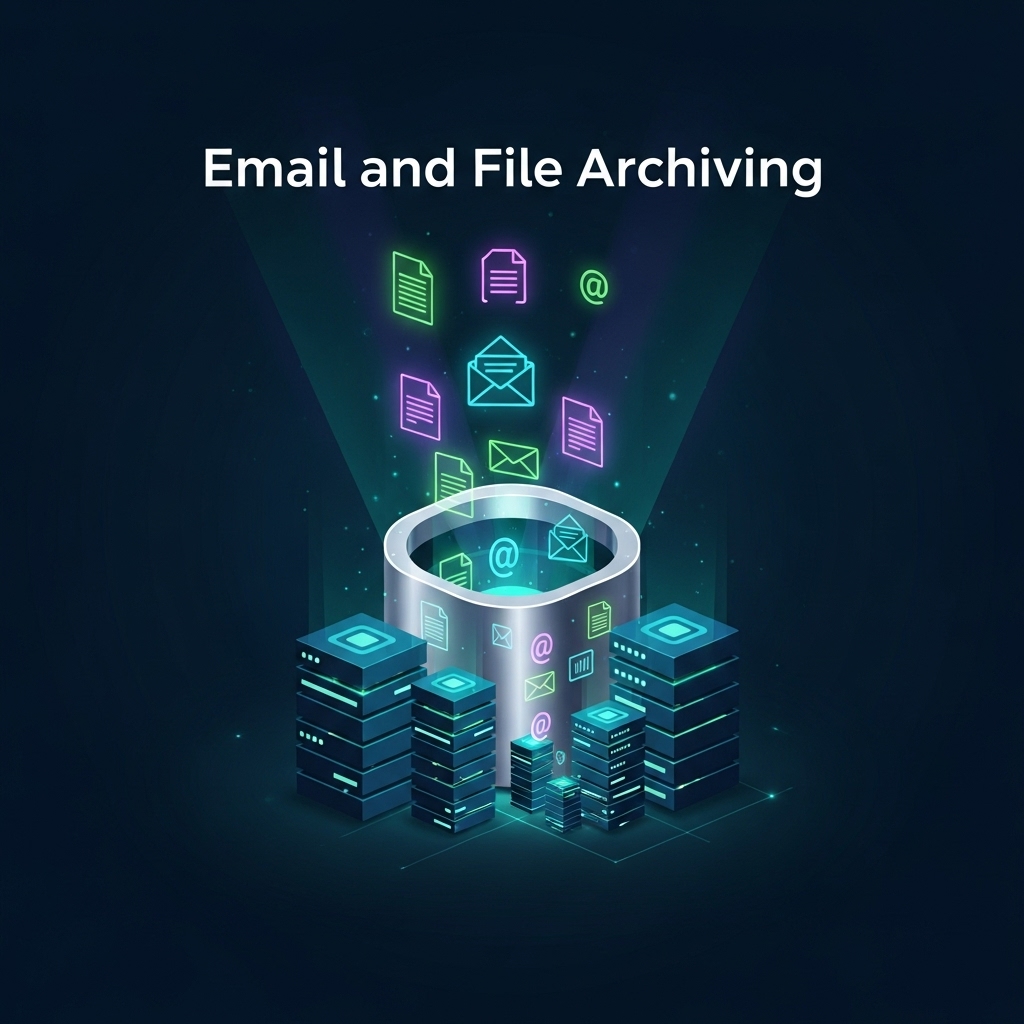Email Archiving
Email archiving refers to the systematic capture, storage, and indexing of corporate email messages and attachments for long-term access and compliance. It is essential for ensuring business continuity, regulatory adherence, and data integrity.
Key Benefits:
• Regulatory Compliance: Helps meet legal retention requirements in industries like finance, government, healthcare, and legal services.
• Business Continuity & Disaster Recovery: Archived emails can be restored quickly during outages or accidental deletions.
• Legal Evidence: Serves as a trustworthy source of evidence in legal investigations or disputes.
• Server Optimization: Offloads storage from active mailboxes, improving system performance.
• Search and Retrieval: Allows rapid, filtered access to specific messages using keywords, sender, date range, or subjects.
Modern organizations deploy automated email archiving platforms with built-in retention policies, encryption, access controls, and audit logging features.
File Archiving
File archiving is the process of organizing and storing digital documents such as contracts, spreadsheets, reports, and code files for long-term retention and efficient retrieval. It is especially useful for managing infrequently accessed or legacy data.
Key Benefits:
• Data Loss Prevention: Ensures important files are protected from deletion, corruption, or misplacement.
• Structured Storage: Files are categorized and managed with metadata for easier versioning and compliance.
• Audit Readiness: Archived documents are readily available for internal and external audits.
• Storage Efficiency: Compression and tiered storage reduce costs while optimizing space usage.
Enterprise-grade file archiving solutions can be deployed locally or via cloud infrastructure, forming a vital part of any organization’s data lifecycle and compliance strategy.












